"Unable are the Loved to die for Love is Immortality" ~ Emily Dickinson.
As the amber and rusty orange hues of this Ontario autumn slowly deepen and spread, the countdown to the launch of my book accelerates. What a journey it has been! All of you beautiful supporters of my newsletter have been to me a constant source of joy. Thank you from the bottom of my heart, and I cherish you all!
In this newsletter, I share a review from one of my earliest supporters, James A. Tweedie from The Society of Classical Poets. With references to specific poems that James cites in this review, I show accompanying illustrations created for my book by illustrator Daniel Schmelling.
James’ bio reads as follows:
James A. Tweedie is a poet and author who has published six novels, four collections of poetry and one collection of short stories with Dunecrest Press. His poetry has appeared in regional, national, and international online and print anthologies and has been favored with numerous awards including a First Place in the 100 Days of Dante competition (2022), the Laureate’s Choice award in the 2021 Maria W. Faust Sonnet Competition, the quarterly award for best poem in the Lyric, and First Place in the Society of Classical Poet’s 2021 International Poetry Competition.
Here are James’ review and Daniel’s illustrations:
A Brief Review of Corey Elizabeth Jackson’s new release,
“Death Kindly Stopped for Me—A Book of Poetry Inspired by Emily Dickinson.”
The title of this collection of poems by Corey Elizabeth Jackson sets the stage for what will be found inside where Jackson—inspired by Emily Dickinson’s poem, “Death Kindly Stopped for Me,”—embraces Dickinson’s personification of Death as a friendly travelling companion. Jackson then extends the metaphor in a series of poems where Death appears to her as a visitor, a friend, a companion, a guide, a muse, and even a savior who extends both grace and love while, Charon-like, he comes to bring her to a new and transcendent existence—a world which Jackson captures in rhyming, rhythmic verse filled with imaginative wonder.
Unlike Dickinson, whose life-long pas de deux with Death left her tiptoeing between faith and doubt, Jackson’s faith in what Death has to offer is confident and upbeat to the point of enthusiasm.
In My Willing Soul Is Wooed by Death we see that enthusiasm on full display:
Fair kingdom that she offers me. From where I dwell on arid heath, I’ll soon in dateless splendor be . . . No longer do I pine to stay Behind where maelstrom snuffs all rest. New vibrancies await ahead As hand in hand with Death I’m led.
In the book’s first section, Jackson describes Death coming for her but leaving empty-handed time and time again. Even so, each encounter leads her, step by step, to cast aside all fear to the point of actually looking forward to the day Death will come for the final time, a sentiment beautifully expressed in these words taken from, Death I have Walked in Your Darkening Shadow:
. . . I fear thee not, Death, for this valley is dappled With shafts of sweet sunlight on rippling streams. Though I on these paths with my nightmares have grappled, I see on hills yonder a table that gleams. I climb from your valley, am brought to the table Full laden with platters of bountiful fare. Come now sit beside me, Death, if you are able. Your shadow won’t darken the love glowing there . . .
For Jackson, Death is sometimes described as a “he,” sometimes a “she,” and, at other times, simply an “it.” But beyond the pronouns, her poems explore times when members of her family, friends and even a homeless man encountered in downtown Toronto, were met by Death in either a drowning, a still-born birth, a car accident, a violent assault or what might be best described as terminal self-neglect.
Inspired by her close encounters with Death, Jackson describes Death as it approaches, Death as it arrives, and what Death looks like from the other side of life. All of this leads her to a conclusion artfully expressed in, We Do Not Die without Our Own Consent:
We do not die without our own consent: Nothing occurs but represents our wish. No matter how we feel of lives misspent, To doubt this truth belies what must nourish. Can grief be part of joy, or pain of peace? Can sickness come where holiness abides? Only when ego’s illusions cease, May we forgo all transitory tides. No chaos, fear, nor Death did God create; ‘Tis only madness that we think it so
Jackson’s visionary expectations of what to expect after Death range from reincarnation, to radiant life in a perfect world “without sin” akin to a “new Earth.” In Awaiting the Solar Flare, she yearns for entering a new life characterized by unity with others and unity with the whole of creation. A world where
. . . beings together in joy and peace stand. Even more I implore from the depths of my heart To know I am One and from nothing apart!
And again, in Sink My Soul through Frozen Ponds,
Sink my soul through frozen ponds, Pristine new fallen snow . . . My soul spreads soft to every stone Around pond’s downy wrap, And travels deeply, swiftly through All wintry shores and traps To soar eternally with ease, To realms as yet untold,
And yet again, in the opening lines of Eyes that See Beyond this World,
Eyes that see beyond this world, Lips that speak of love, Growing numbers sensing that Our time has come to rove . . .
Jackson’s poetry ranges from set forms such as villanelles and rondeaux to a kind of free-form formality not unlike the poetry of Dickinson, where the thoughts and feelings being expressed sometimes require the poet to color outside the lines.
Although Jackson’s view of Death and the life to come are expressed in ways that do not always align with my own, I commend her for her creative work and the new insights her poetry draws from Emily Dickinson, a poet whose own struggles with life, death, faith and doubt took place in the context of a Christian, New England landscape both similar and different from the one in which Jackson and I find ourselves today.
Despite our differences, I find myself attracted to Jackson’s skill in alliteration, as in the opening lines of My Essence Seeks that Static State where the use of the letter “s” is best appreciated by reading the opening two lines out loud:
My essence seeks that static state Where stillness waxes prime
In addition, there is also wry humor waiting to be found, as in, My Soul Is Off to Visit Chums, which I will quote in its entirety:
My soul is off to visit chums Residing past horizons fair, Spanning centuries, dipping into Solitary hermit stars, Passing entities in transit, Reaching out to worlds dear, Perching rapt in hubs of space, Dancing on the face of Mars.
And how can one not delight in the way Jackson frames her yearning for what Death will offer when he/she/it comes, as described in Soak My Soul in Babbling Brooks:
Soak my soul in babbling brooks ‘Mongst springtime woods and dales, To join deep oceans blue and grand And hobnob with the whales. Spread my soul on tops of lilacs In meadows newly green. Slide my soul amongst the trillium Of spring flowers the queen. Hike my royal soul up mountains, Rugged, watchful, kind, Home as blooming souls and flowers Through their passes wind. Send my soul into the skies To permeate as one With other spring souls venturing, And from which all souls come.
This 168 page book contains 68 original poems, each of which is short enough to fit on one page. [Author’s Note: Each poem has its own illustration on the page opposite.]
While each poem looks at Death from one angle or another, none of them come across as being particularly mortifying.
Because of this, readers who have come face-to-face with Death in the past or who are expecting a visit from Death in the near future, will find an approach to life and Death that will bring comfort and empathy, along with a word of encouragement on every page.
It is a collection worth reading and comes with my own enthusiastic recommendation.
(End of review.)
Thank you, James, for this extensive and soul-stirring review! (More in another newsletter about how James Tweedie inspired my final poem in my book . . . )


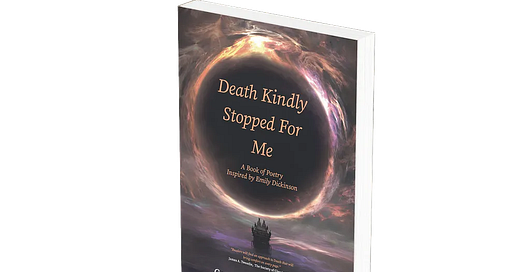





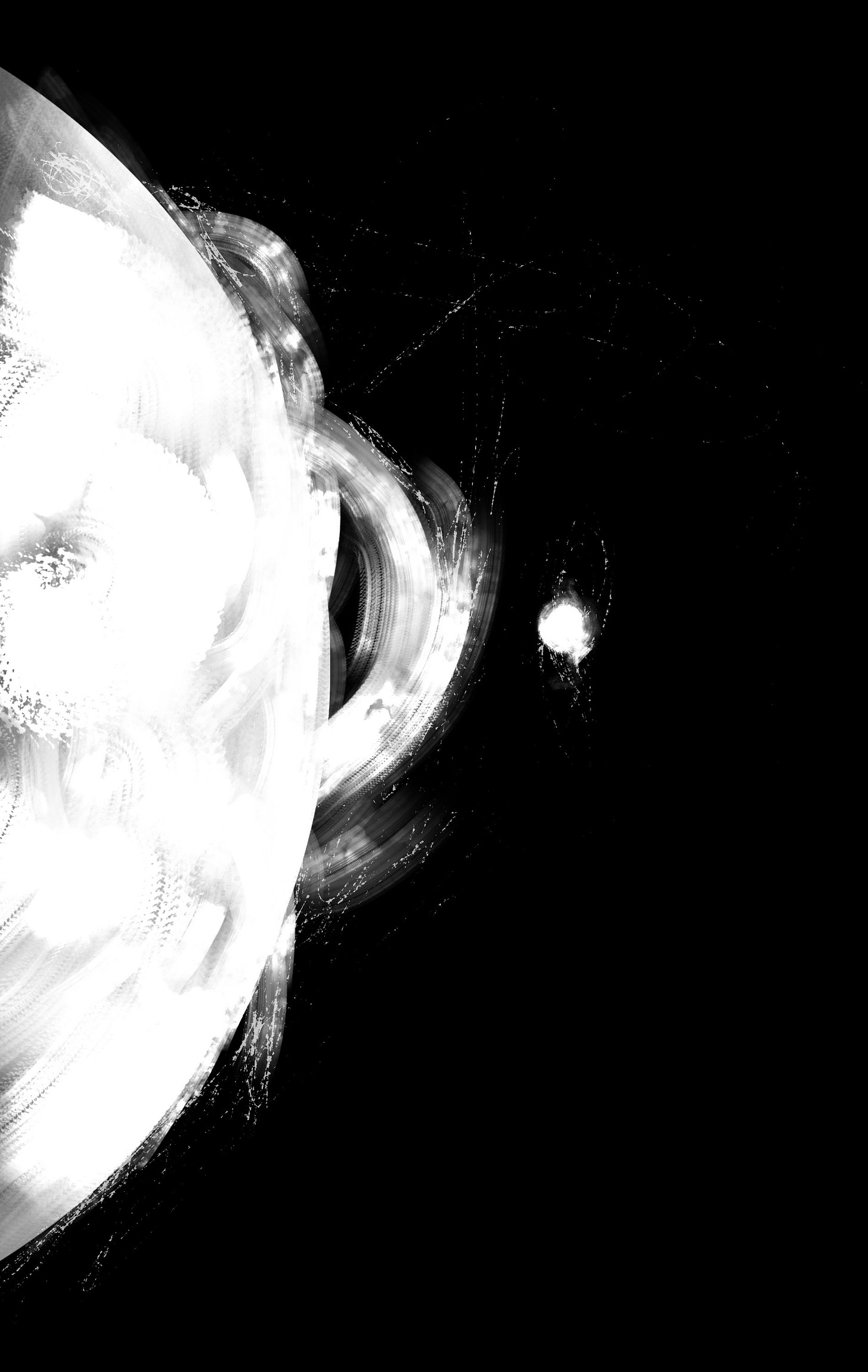
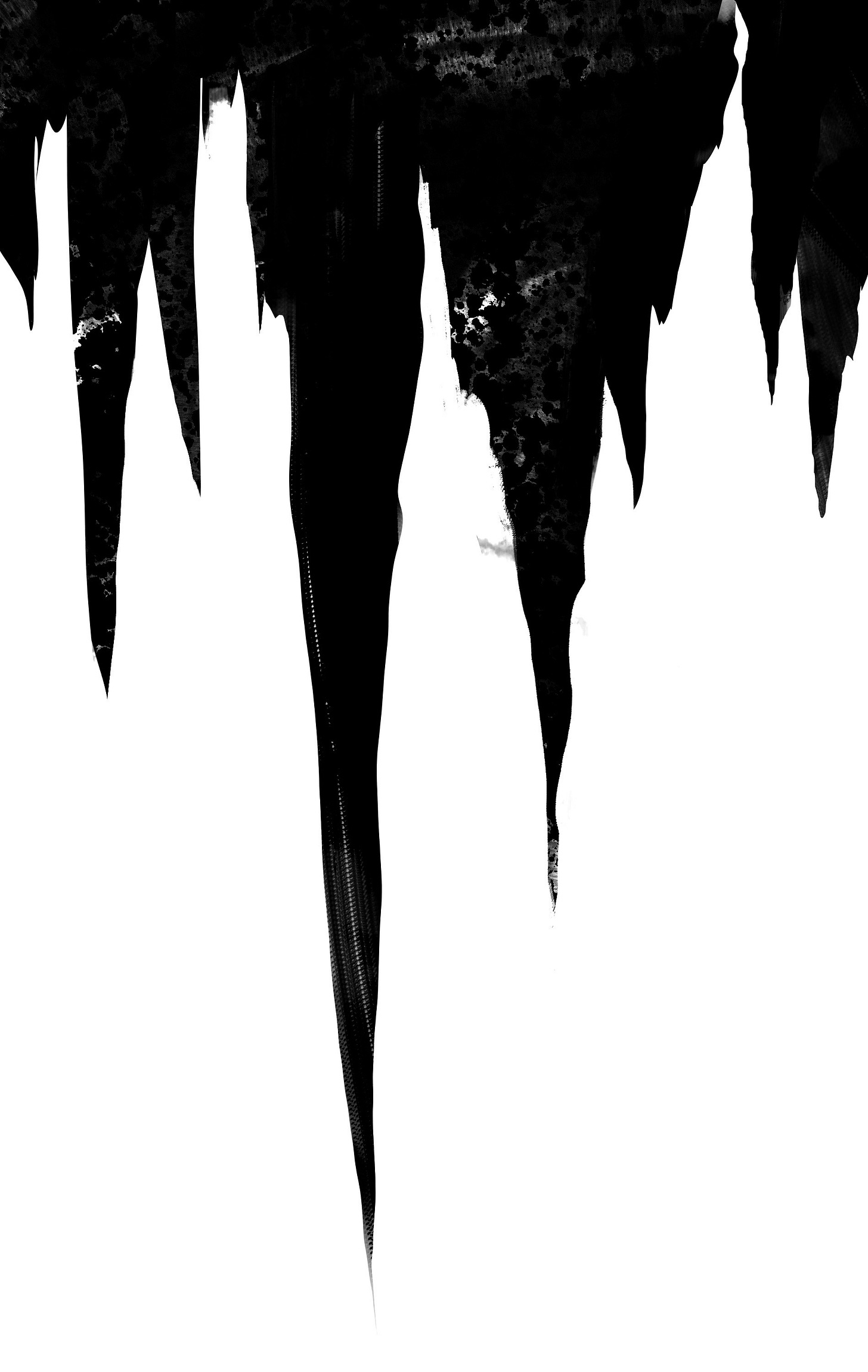
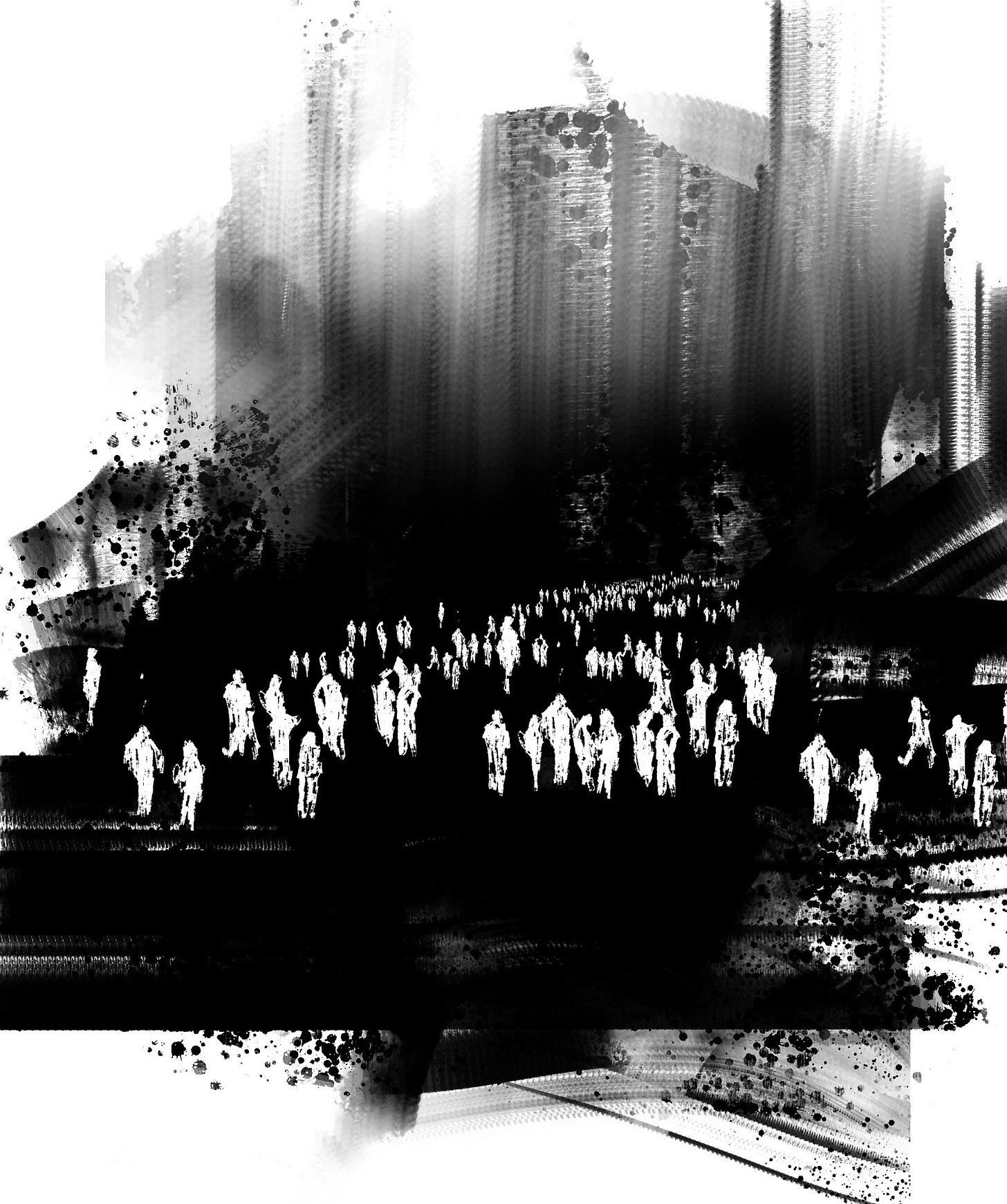
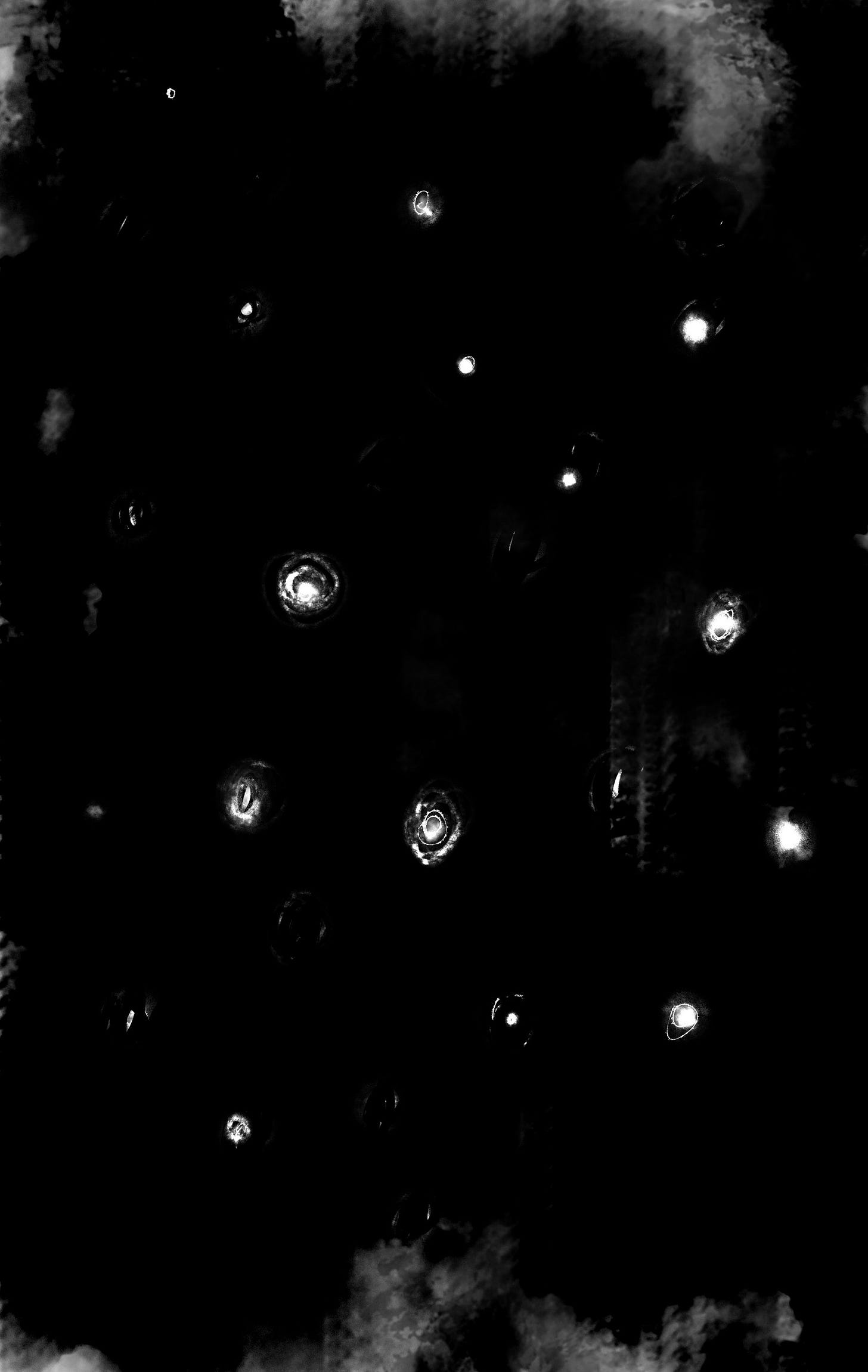

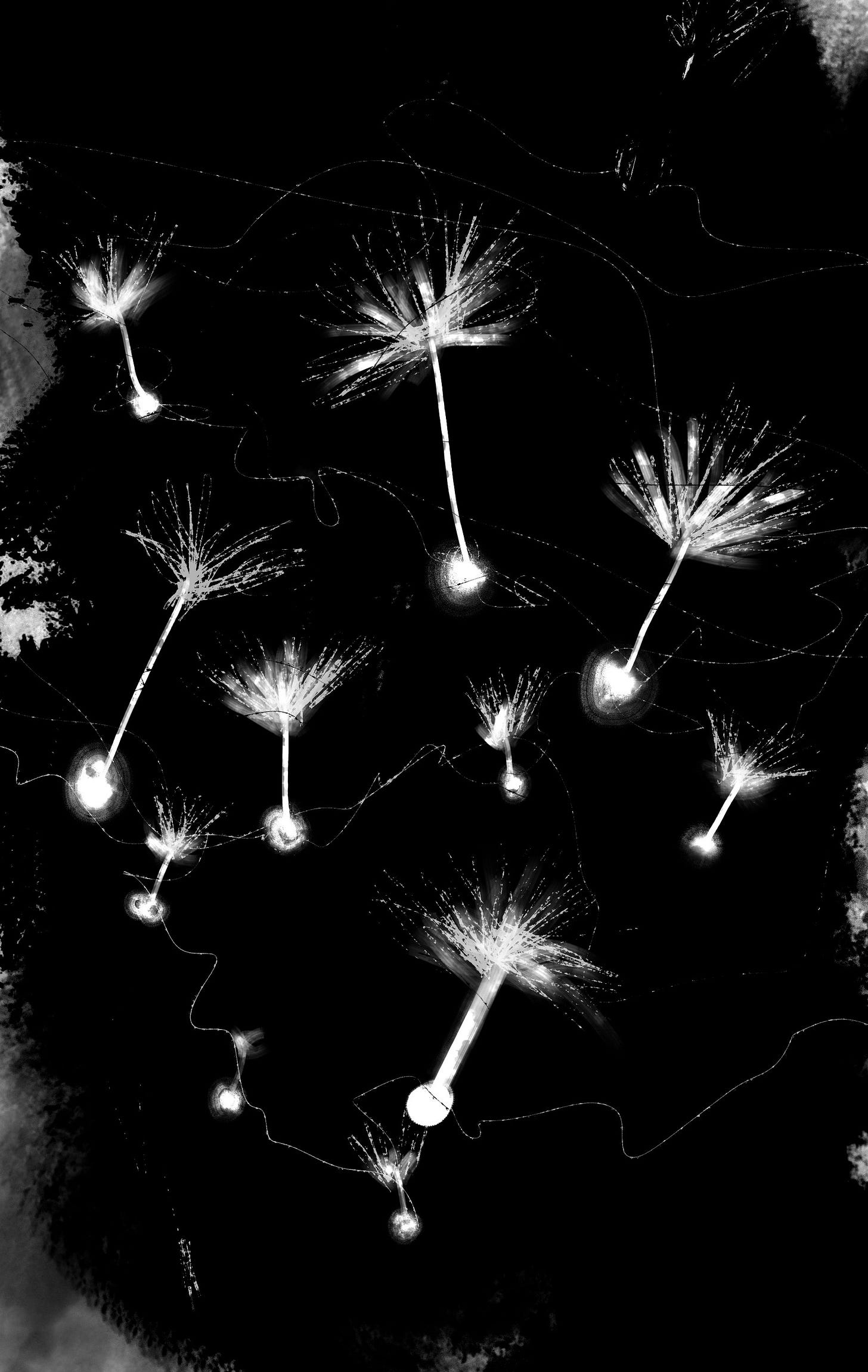
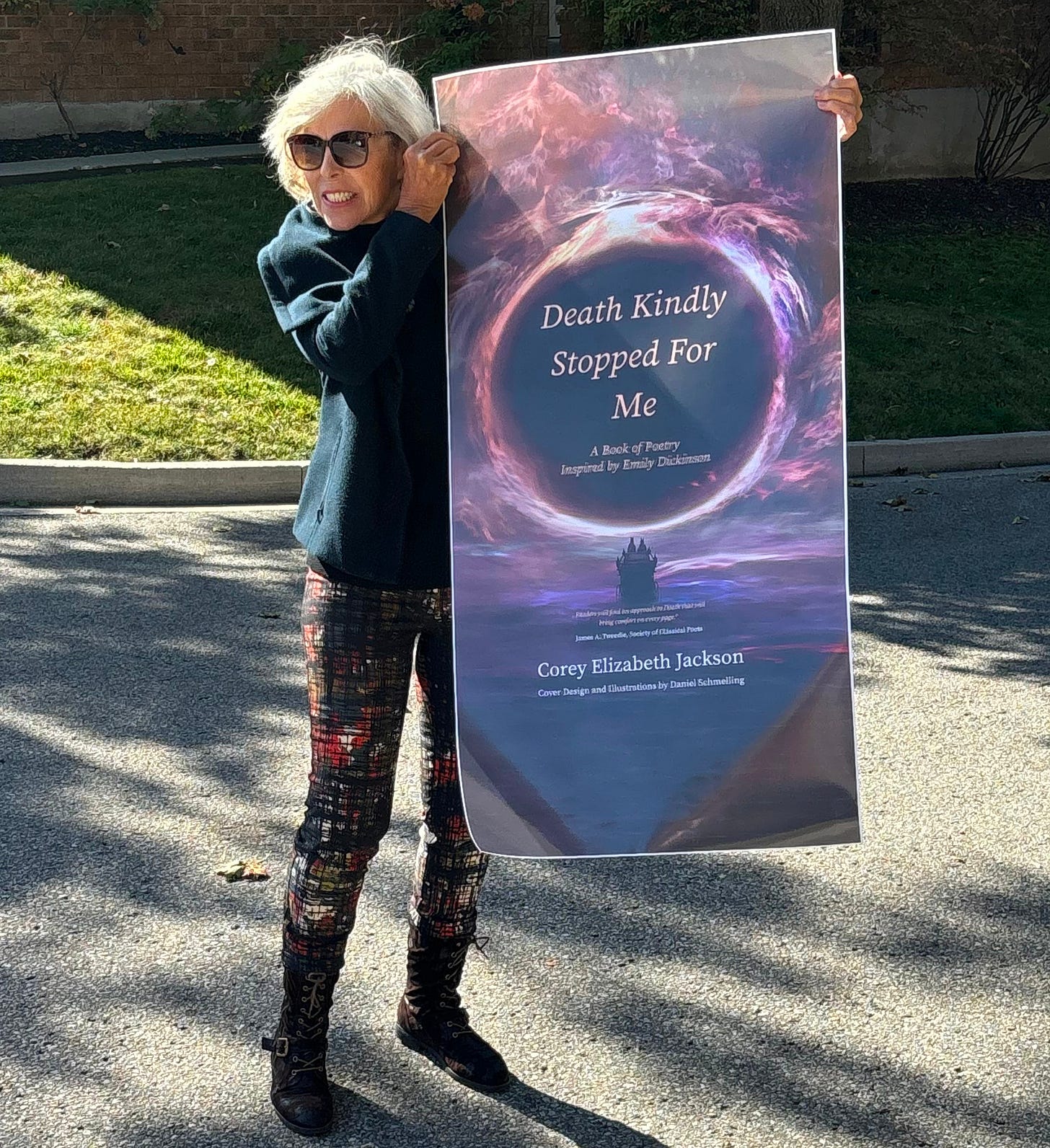
Interesting Corey- still grappling with the concept after experiencing the reality when our beautiful16 year old grandson was killed in an accident.